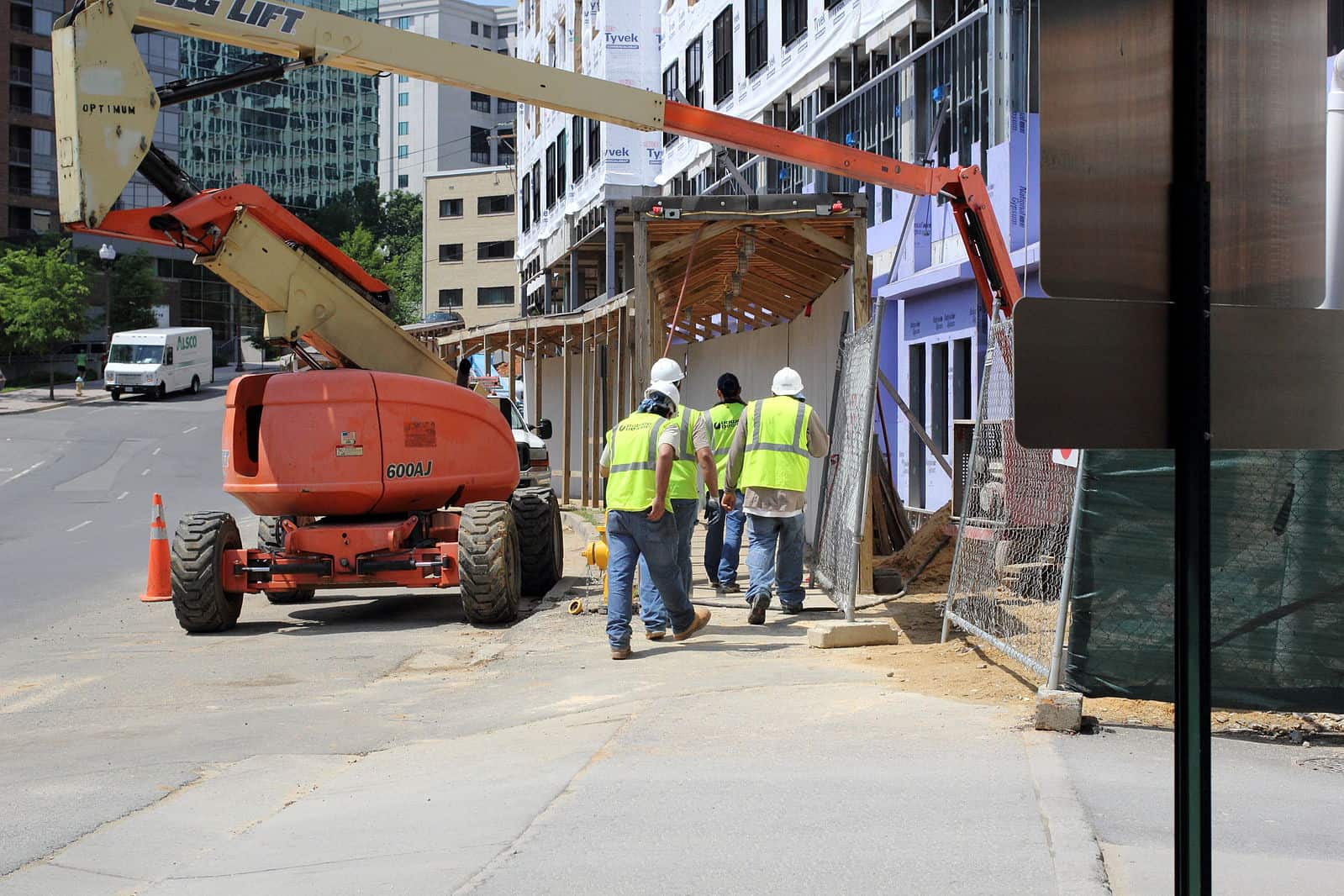
Maddie Chang is a student at Harvard Law School.
In today’s news and commentary, Oregon considers a bill to address wage theft in construction, the EEOC brings a discrimination claim against a restaurant on behalf of a transgender employee, and a new Department of Labor survey finds widespread labor violations in the Southern California garment industry.
The Oregon state legislature is considering a bill to address wage theft in the construction industry. House Bill 2057 would make general contractors responsible for their subcontractors’ wage theft, and would allow workers to sue for their wages for up to six years after the work took place. The idea behind the bill is that because general contractors are more established and stable than subcontractors, workers are more likely to recover unpaid wages. General contractors are also in a better position to prevent wage theft in the first instance in their selection of subcontractors. The Oregon Law Center, which testified at the bill hearing further explained: “The tiers of employment make it difficult for workers to reclaim unpaid wages because each tier is free from any liability to the next.” The bill’s third reading is scheduled for today.
The Equal Employment Opportunity Commission (EEOC) is bringing its first claim on behalf of a trans worker since 2017. The suit alleges that T.C. Wheelers Bar & Pizzeria in Tonawanda, New York subjected Quinn J. Gambino, a trans employee, to harassment by misgendering him, asking invasive questions about his body, and making anti-trans comments. The claim is that this harassment amounted to constructively discharging Gambino. In pursuing this case, the EEOC is building on the Supreme Court’s 2020 ruling in Bostock v. Clayton County, which held that discrimination against trans workers violates Title VII. The agency first sought a pre-litigation settlement through the conciliation process. It now brings this suit in the U.S. District Court for the Western District of New York, Buffalo Division.
Last week, the Department of Labor released the results of a survey of the garment industry in Southern California that found widespread violations of the Fair Labor Standards Act (FLSA). 80 percent of garment manufacturers and contractors surveyed were found in violation of the FLSA. The Department’s Wage and Hour Division also found that in 2022, 32 percent of contractors were paying workers piece-rate wages (paying workers based on the number of garments produced), a practice which became illegal in California at the start of that year. As reported in the LA Times, the survey reported an instance where a contractor paid garment workers as little as $1.58 per hour. Partially in response to these findings, garment workers gathered on Tuesday morning to protest outside the Los Angeles City Council. They were also protesting upcoming zoning decisions that will impact the Garment District.






Daily News & Commentary
Start your day with our roundup of the latest labor developments. See all
June 30
Antidiscrimination scholars question McDonnell Douglas, George Washington University Hospital bargained in bad faith, and NY regulators defend LPA dispensary law.
June 29
In today’s news and commentary, Trump v. CASA restricts nationwide injunctions, a preliminary injunction continues to stop DOL from shutting down Job Corps, and the minimum wage is set to rise in multiple cities and states. On Friday, the Supreme Court held in Trump v. CASA that universal injunctions “likely exceed the equitable authority that […]
June 27
Labor's role in Zohran Mamdani's victory; DHS funding amendment aims to expand guest worker programs; COSELL submission deadline rapidly approaching
June 26
A district judge issues a preliminary injunction blocking agencies from implementing Trump’s executive order eliminating collective bargaining for federal workers; workers organize for the reinstatement of two doctors who were put on administrative leave after union activity; and Lamont vetoes unemployment benefits for striking workers.
June 25
Some circuits show less deference to NLRB; 3d Cir. affirms return to broader concerted activity definition; changes to federal workforce excluded from One Big Beautiful Bill.
June 24
In today’s news and commentary, the DOL proposes new wage and hour rules, Ford warns of EV battery manufacturing trouble, and California reaches an agreement to delay an in-person work mandate for state employees. The Trump Administration’s Department of Labor has advanced a series of proposals to update federal wage and hour rules. First, the […]